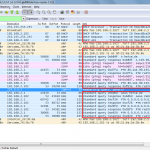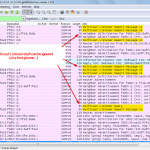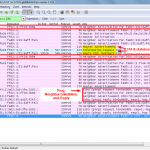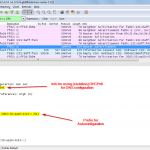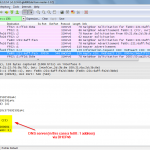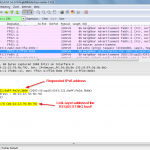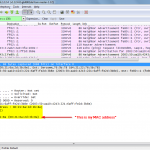When explaining IPv6 I am always showing a few Wireshark screenshots to give a feeling on how IPv6 looks like. Basically, the stateless autoconfiguration feature (SLAAC), DHCPv6, Neighbor Discovery, and a simple ping should be seen/understood by any network administrator before using the new protocol.
Therefore I captured the basic IPv6 autoconfiguration with a Knoppix Linux behind a Telekom Speedport router (German ISP, dual-stack) and publish this capture file here. I am using this capture to explain the basic IPv6 features.
I activated the wlan0 card on a laptop and captured the whole process of the autoconfiguration. These are the things to discover in this capture:
- DHCPv4 for IPv4 address
- Ping via IPv4 (name resolution via DNS)
- ARP
- Multicast Listener messages for IPv6
- Duplicate Address Detection (DAD) for IPv6
- Router Advertisement for IPv6 address
- Stateless DHCPv6 for the DNS server address
- Ping via IPv6 (but name resolution via IPv4 DNS)
- Neighbor Solicitation/Advertisement
Following is the complete capture file for detailed analysis:
And a few screenshots to give basic hints on what to explore (notice the display filters within Wireshark):
Featured image “Mr. professor” by Jonas Carlsson is licensed under CC BY-NC 2.0.


